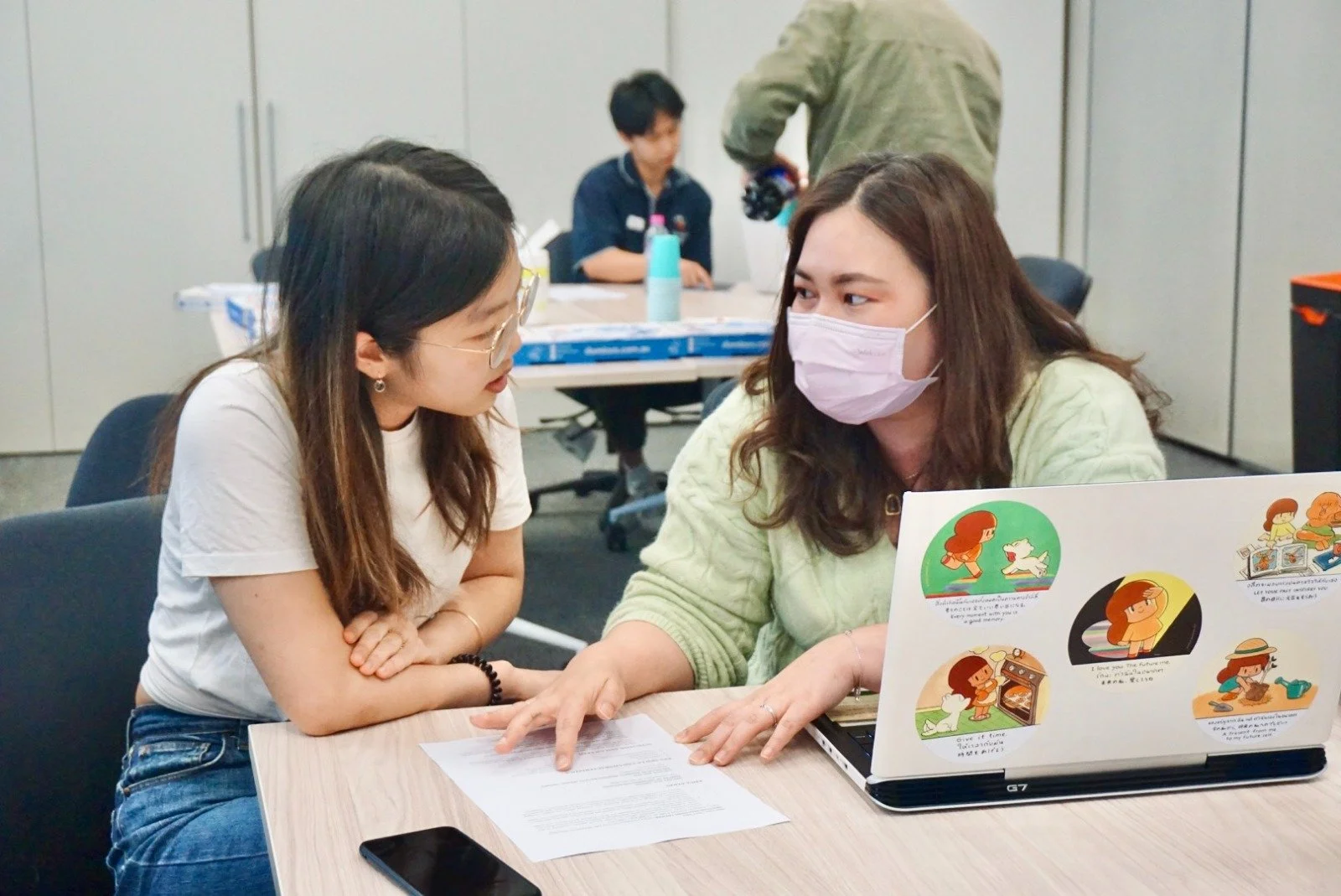Stint identifies gap in the labour market by helping international students getting jobs
Nathan Lee
Co-Founder at Stint Community
Nathan is from Darwin in the Northern Territory but now lives in Melbourne for university. He is super passionate about social impact and the start-up ecosystem. His dad was a refugee from East Timor and had to overcome so many challenges thus he has always wanted to do his part to give back to the community.
Currently studying a Bachelor of Commerce, majoring in Accounting and Finance, at the University of Melbourne graduating at the end of 2022.
Stint Community
An online platform and community dedicated to helping international students build a career in Australia. Stint works with key stakeholders in government, companies, and the students themselves through:
1. Supporting students in finding, applying and landing relevant roles.
2. Helping companies tap into Australia's international student talent pool.
3. Advocating for systemic changes in the way Australia views and treats international students.
1. How has Stint built a community in Australia that is supportive for international students?
Stint’s vision from the beginning has always been to create a centralised community which acts as a support system for international students, where they can connect with one another and network with industry professionals and hiring managers. Through our wide range of community channels, each of which serves a different purpose (for example, one to share upcoming career events, another to share job opportunities, etc.), we’ve successfully managed to build an enthusiastic community of active users. In under 10 months, close to 700 members have joined Stint, and throughout this journey we’ve seen numbers increase by as much as 100 in just 6 days - evidence that we fill a niche that no one else does. Together, we share triumphs and tribulations, ideas and inspiration, and all the experiences in-between. As this number continues to grow exponentially, we have adapted to the growing needs of the international community by introducing a variety of channels, such as engaging migration agents to aid students with their visas and PR/citizenship questions in Australia.
2. What makes you inspired to do what you do?
I am a strong believer in equal opportunity and in this case, I believe that no matter where you come from or what your nationality is, you deserve a fair chance at building a future in Australia. There are many harmful misconceptions surrounding international students, one being that they come from privileged backgrounds or reduce the job opportunities available to domestic students. However, many come from less-than-fortunate situations in the hopes of building a better life for themselves and their families back home. At present, equal opportunities are not being afforded to international students as the majority of the jobs on the market require Australian citizenship or PR status. And the process of finding jobs that don’t have these requirements is very time consuming. For instance, SBS found that only 34% of Australian workplaces hire international students. Through Stint, we want to make the job landscape in Australia more equitable, and one that reflects our values.
3. Do you have any stand out stories of people that achieved success through their community support with Stint?
Stint has helped an international student from Vietnam find an internship as a Business Operations Intern at Sample, an Australian-based startup that recently raised $670K in pre-seed funding, through our Slack community.
Here is what Bruce had to say about our community and platform:
“Stint has helped me secure this job by creating an environment where I have direct contact to employers and recruiters. I love how the moderators at Stint are very active and are ready to answer members’ questions about job searching.”
While Bruce has been our biggest success story to date, we also regularly receive messages from our members showing their appreciation for our work, and how it's helped them gain clarity and confidence in their respective job-hunting journeys - which we view as a "success" in and of itself.
4. What did you study and how do you see those skills transferring to your work with Stint Community?
I recently graduated with a Bachelor of Commerce from the University of Melbourne, majoring in Finance and Accounting. This has equipped me with a strong understanding of financial and accounting practices as well as analytical and critical thinking skills. However, I would say that my experience building community projects at Enactus Melbourne has more directly translated to my work at Stint, where we built events and initiatives tailored for over 400 general members. In addition, I have immersed myself within the Australian startup ecosystem by participating in programs run by Startmate and Blackbird - which has helped me build a network, understand how to build communities and grasp the Australian employment landscape. However, I am lucky to be surrounded by a team with strong experience and from diverse educational backgrounds, many of whom are international students themselves. Together, we know we are the right team to make a fundamental change for the betterment of all international students in Australia.
5. You’re enabling people to access a better future, how does this shape a sense of community and belonging to Australia?
When the majority of international students arrive in Australia, they face many challenges that are especially difficult to tackle alone. However, through our personalised support and the multiple resources that we make available, students will be supported throughout their journey and become better equipped to successfully enter the workforce. Moving to another country is a huge feat, and Stint aims to dispel the barriers and issues that international students face along the way. Our job board is another excellent example of enabling people to access a better future as it provides streamlined access to relevant roles that they're actually eligible for.
The support that we provide, together with the opportunities we showcase that are provided by other organisations in Australia, helps foster a stronger sense of belonging among international students. It shows them that we care about them and their future.
6. Does having a supportive and practical community for international students help sustain Australia’s reputation for student experience?
Without a doubt. In 2021, during the peak of COVID and lockdowns, Australia’s reputation as a destination for international students reached its lowest point as there was no clear plan laid out for them and their future. For those international students in Australia at the time, there was very limited support provided which severely impacted their mental health and general well-being, as many felt extremely isolated. Through our community, we provide both practical support and a sense of belonging for international students through anything from free CV reviews and food recommendations, to hosting in-person community meet-ups across different cities. Re-building their support network from scratch after moving to a new country is one of the hardest aspects of an international student’s journey. Therefore, all of this works to help international students feel supported and connected, which ultimately helps improve the student experience for them in Australia.
7. Why do I think this is valuable for Universities?
For many international students, studying abroad is a matter of livelihood as they seek to create a better future for themselves and their families. This journey is unique to them. Therefore, by creating an environment where international students, both past and present, are supporting each other - we can ensure that the support is from someone who truly understands what it's like. Additionally, the Stint team is made up of mostly international students and, combined, all of these factors make Stint truly unique. It's a service that universities are not able to offer their international students. Aside from enabling international students to meet their institutional peers, they join a wider and vast network of international students from all across Australia. The work that we do is valuable for universities as we're supporting their students by helping increase their employability and improve the student experience - all of which will only reflect well on them.
8. Do you think there can be a disconnect between University and employers for the skills they want students to have?
There is a glaring disconnect between what we're taught in university, and the skills that employers are looking for. Universities in Australia are heavily outdated when it comes to preparing students and graduates for the workforce. Many of the things that we're taught are simply not necessary and I think big changes need to be made in order to ensure young people are "workforce-ready". Here at Stint, we try to emphasise to our members the importance of gaining that practical experience to complement their formal studies, be it through internships, practicum programs or volunteering. Aside from the valuable lessons they provide, this also helps students to build up their CVs and ultimately become more competitive candidates. We're here to help international students with the WHOLE job application process, and this starts with encouraging them to look beyond university to develop their skills and improve their employability.
Aside from the skills aspect, I also think that young people nowadays are not fully equipped to make the transition into a full-time career, be it due to a lack of understanding around pathways, or simply a lack of knowledge of the journey ahead. Many tend to limit themselves off into the most "popular" or "trendy" jobs available and there is also a lot of misinformation available on the internet. At Stint, we address this by hosting workshops and panel discussions where we invite current professionals to share their experiences, tips and advice to dispel any myths. Our job board also lists roles across a broad and diverse range of industries to showcase the sheer breadth of jobs available - many of which would otherwise go unnoticed by students.
9. How does Stint Community adapt their services for different cultural backgrounds and build stronger relationships to the Australian community and workforce?
With our community members hailing from over 36 countries across the globe and 18 different institutions across Australia, we have built an extremely diverse group of international students. With the way our community is structured, there is no service which is specific to any one cultural background. More generally, we constantly encourage our moderators to remain open-minded and inclusive in their interactions with community members.
In terms of building stronger relationships with the wider community, we have a dedicated team responsible for partnerships with various organisations that align with our mission. These are not limited to firms and employers. For instance, we collaborated with Yo-Chi, a popular frozen yogurt brand, in hosting our first ever Stint community meet-up. These partnerships are a great way to spread word about us throughout the broader community.
10. Why is it important to support International students with their employment outcomes and sense of belonging?
According to the National Skills Commission, Australia’s skills shortage has doubled from 2021 to 2022. International students represent an untapped talent pool that has been neglected by both the government and employers alike. A 26 percentage point increase in the employment rate of international graduates to match domestic students, would lead to 40,000 more skilled workers for Australian businesses to benefit from every year. However, at present, there is still a lot of work to do as according to the AFR, only 16% of international students stay on in Australia after their studies end. This represents a huge missed opportunity for the Australian economy, as the talent we have nurtured through our tertiary education system continues to leave.
There's an important double effect that happens if we improve employment outcomes. Aside from obviously addressing our skills shortage and boosting our economy, it's important to note that education is one of Australia's biggest exports. And supporting international students will improve Australia’s reputation as a global destination for international students.










